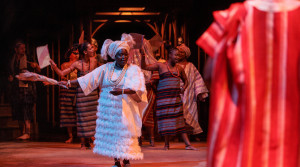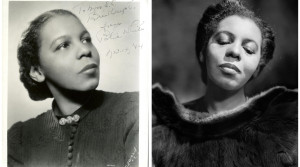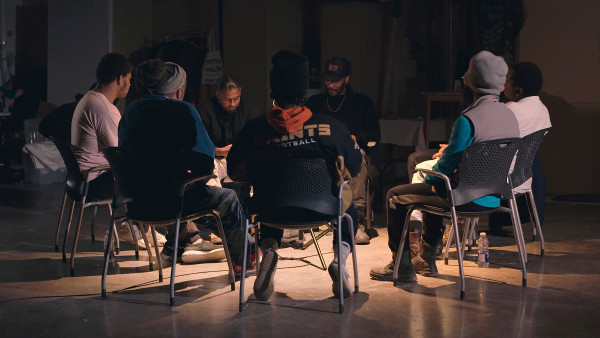The Black community is tired—for an exceedingly long list of reasons. However, it’s how we openly deal with our fatigue and wearied selves that poses the problem, particularly for Black men. Managing mentally ill family members was seen as taboo and swept under the rug. The dialogue that should have taken place between family members was null and void—and this behaviour still prevails today.
Frankly, for some, growing up in a Caribbean household with depression or anxiety adds to the inner turmoil. Not having a sounding board to work through issues can be damaging. Resting under the guise of ‘being okay’ is just as harmful.
Keeping up appearances
Award-winning poet and playwright Luke Reece explores this dichotomy in his interactive one-man show As I Must Live It. Reece performs pieces in a flux of memories of growing up with a mentally ill father in a mixed-race family. The standout piece “Creases” fully captures how the Black community leans into dealing with mental health. Yet, the entire play is a complex and emotional performance that moves from joyfulness and excitement to darkness and disconnection. Being of Barbadian and Italian heritage, community was always around in moments of joy and support. But when things flipped onto the darker side, the deprivation was felt.
“It’s funny, but we never talked about the hard stuff,” said Reece. “We had community in celebration and enjoyed it. But when it came to dealing with things, that’s when it got hard and communication got dysfunctional. That was clear on both sides. I think because both sides are immigrant families, that’s what’s prevailed and what I’ve seen. My Bajan and Italian sides were just trying to put their head down, work hard and survive. It was more of ‘we’re going to celebrate when we’re together, but outside of that, we’re going to have to appear strong.’”
{https://youtu.be/uAp7XgZ1DrU}
Reece’s father spiralled into depression and anxiety after being laid off from his job. Going back to the never-ending list of reasons Black people are fatigued, systematic failures and pressures in a society not built for us, sits high at the top. Reece feels that his father’s illness was fuelled by that. “My father was dealing with so much when he first came here in terms of understanding what was expected from a Canadian immigrant. When I look back at a lot of the things that my dad did, it feels like he was reaching out for someone else's expectations. I think that was a factor in his weakened mental state and depression,” said Reece.
This mentality of celebrating in public and hurting in private is what tears us apart. The pressure and facade of being the ‘strong Black man’ and living up to society's standards has been proven to be a detriment. It’s the safe spaces and outlets for Black men that are needed. We’re starting to see more of them come to be now, but there’s still a lot of work to do.
Therapy can come in many forms. Whether it’s via a journal or with professional help, having the chance to reconcile with your feelings and work on strengthening shattered relationships is the ideal outcome. In a sense, this play has been therapeutic for both father and son. As difficult as it has been, the show has presented a way for fences to be mended and for lives to start anew.
“I’ve been able to articulate the clearest I’ve been able to, how he’s made me feel through this experience and how I also want to get to know him again. I want to reintroduce ourselves to each other. I’ve grown so much during the time he was away and not present. So as much as I don’t know who he is, he also doesn’t really know who I am now.”
Seeking professional help - the flip side of the coin
It’s not a secret that Black men are the least served in the community. Speaking to registered social worker and psychotherapist Jermaine Morrison from Francis Psychotherapy solidified that. With more than twenty years of experience, he has primarily worked with Black men in the community. Morrison has seen what the effects of emotional neglect can do. This speaks directly to Reece’s father’s emotional state. “Generally speaking, Black men have a very unique challenge of presenting themselves as masculine while not being vulnerable, yet at the same time, they are not handling a lot of the stressors and traumas they’ve been experiencing. A lot of them have faced more trauma than we would like to admit or even acknowledge,” said Morrison.
There is the unmentionable perception and stigma of men being weak when vulnerability is shown. And it’s not just the stigma. Alongside, there are various reasons why Black men turn inward instead of outward for the necessary help. Back in the day, seeking therapy was seen as flighty or the thing that ‘white people would do.’ Over the years, perception has changed but more so amongst Black women. With the whirlwind movement of self-care ushered in, Black women have made it more acceptable in the community to take care of themselves and seek professional outlets when needed. However, even though the same trajectory is slowly presenting itself for Black men, it’s still an uphill battle.
“We have to always tackle how we got here in the first place. When we talk about spaces, those are just the manifestations of being able to be comfortable in spaces to talk about certain things. Are there spaces out there for Black men? It’s starting to come. I’m not saying there’s a lot, but to put it into context, women for many years, have built those foundations,” says Morrison.
To help change the course, we have to start asking the pertinent questions. Can you handle the stressors? If you can, that’s one thing. But usually, without treatment, these behaviours affect the family, community and even employment. The one question Morrison would love to hear asked to Black men more often is, “Do you feel safe?” He goes more into context, “This comes back to the whole vulnerability argument. If a man is unwilling to talk about the stuff that they’re going through, that tells you that they feel unsafe to talk about it. They’re trying to hide, not trying to bear it all. They’re pretty much trying to handle it on their own. These behaviours can usually be attributed to how they were treated [in a situation] years ago or when they were young. So the above question is something that we have to continue to ask our Black men.”
Creative life
Unbeknownst to Reece, his father was just as much of a creative as he was. When he stumbled upon some of his father’s writings, he found a treasure trove of philosophical insights. One of his dad's most prolific statements: “Most people end up doing what is expected of you, not because it is truly what you want to do. These people stifle their true desires only to become inmates in prisons of their own makings.” When thinking of this statement, I found it poetic that because he turned inward, Reece’s father ended up making his family inmates within their own prisons dealing with him.
Nonetheless, in turn, Reece and his dad have come to a place of healing and understanding—on both ends. And it took a lot of growth and time apart to get here. Perhaps the understanding was something that was missing along the mental health journey.
Reece is learning not to repeat mistakes he grew up in the midst of, while at the same time, he’s rebuilding with his dad and with himself. Whether it’s through the difficult conversations of how to cope with his experience to ways to restore and move forward, the work is now being done.
Another truthful statement Reece’s father wrote was: “Writers, painters, poets, as always, are the links to a new consciousness. Eventually, they will show us the way.” When I asked Reece if he felt his show delivered on said statement, he said, “I hope it does. I really hope it does…to hear such a concrete statement putting artists on this pedestal, that’s the part that he [my dad] likes to talk about now—the poet in him. Things that he used to do and the writers. And it’s still hard for me to believe that that’s a part that I got from him because I still haven’t fully experienced that! (laughs)
Like Morrison, Reece believes that spaces where Black men can be vulnerable and trust in others are a need. “The only reason why we keep secrets is because we’ve been trying to survive in a land where we don’t trust the systems, we don’t trust the people—for good reason! So how do we find the spaces where we do feel that trust so we can be vulnerable? Where are the systems that are founded on an understanding of the Black experience? Things that are given and not needed to be brought into the space but things that are inherent in those spaces. Who is empowering these spaces so you can trust that this person is not going to try to use us, exploit us or tokenize us? We need to trust before we become vulnerable.”
If you know of someone in need of a safe space or trusted outlet, please feel free to find out more information via these trusted community resources for the Black community:
You can see As I Must Live It at Theatre Passe Muraille until Saturday, March 2, 2024.
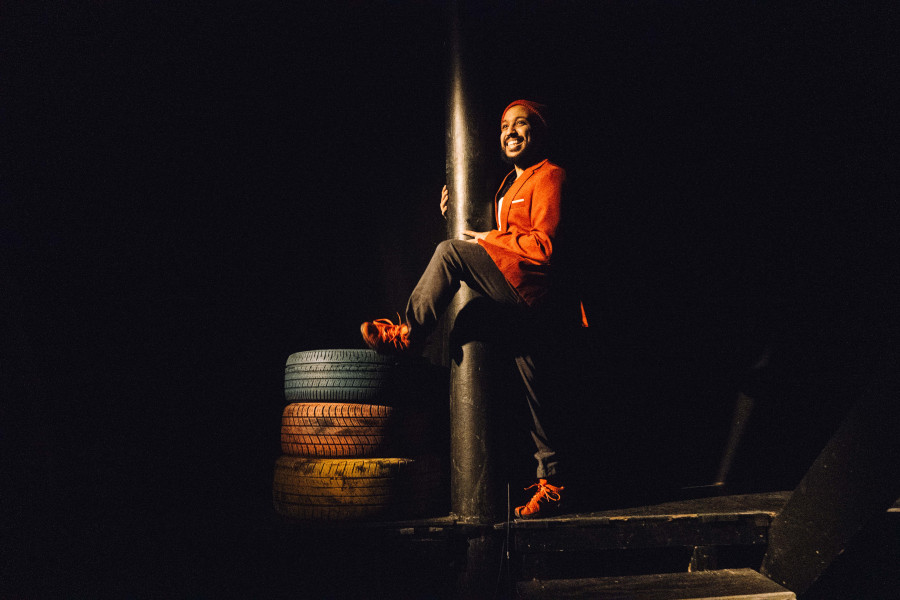
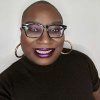 By
By 




